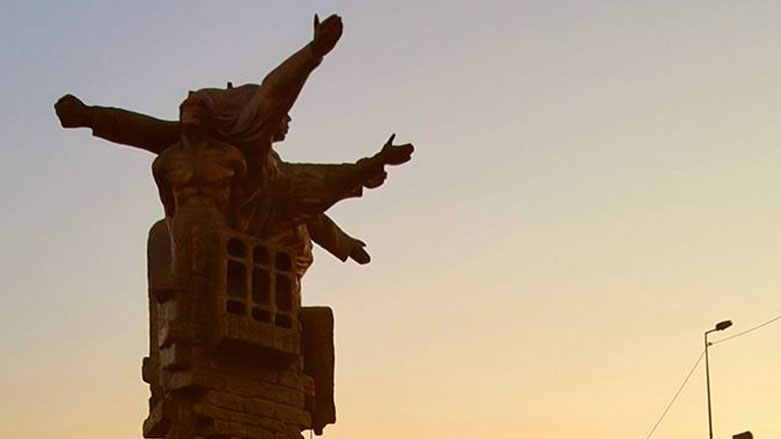US commemorates anniversary of genocide against Faili Kurds by former Iraqi regime
“Today marks the annual anniversary of the genocide against the Faili Kurds in Iraq, as we recall the measures launched against them by Saddam's totalitarian regime.”

ERBIL (Kurdistan 24) – The United States diplomatic mission in Erbil commemorated on Sunday the genocide against Faili Kurds over four decades ago at the hands of the former Iraqi regime, affirming their commitment to supporting minorities in Iraq and the Kurdistan Region.
Faili Kurds have been subjected to systematic displacement since the establishment of the modern Iraqi state, ramping up during the rule of President Ahmed Hassan al-Bakr between 1970 and 1975. Bakr was the head of the Ba’ath party for many years before losing power to Saddam Hussein in 1979.
Saddam continued his predecessor’s forced displacement policies, claiming that the Failis were of Iranian descent and revoking their nationality, until the United States toppled him in 2003.
Iraq’s Jewish population faced a similar same fate. Following the creation of Israel in 1948 and subsequent regional military conflicts, some Middle Eastern nations including Iraq reacted by expelling their Jewish communities. Between 1950 and 1952, Iraq deported roughly 125,000 Jews by airplane to Israel, revoking their Iraqi citizenship and permitting each to carry only one bag with them.
“Today marks the annual anniversary of the genocide against the Faili Kurds in Iraq, as we recall the measures launched against them by Saddam's totalitarian regime.,” The US Consulate in Erbil said in a post on its Facebook page.
The Ba’athist regime instituted “measures such as racial discrimination, displacement, revocation of citizenship, deportation, marginalization, and confiscation of their belongings and properties,” the statement added.
The United States supports “achieving social justice among all factions of society,” reaffirming its commitment “to preserve the ethnic and religious minorities of the Iraqi Kurdistan Region and Iraq and to promote pluralism and tolerance.”
Injustice
Most Faili Kurds are Shia Muslim. They live in central Iraq, especially in Diyala, Baghdad, and Wasit.
There are no official statistics on Faili Kurds in Iraq. Unofficial figures, however, show that up to 15,000 Faili Kurds were never found after they were taken by the former Ba’ath regime, and 350,000 were forcibly displaced to Iran.
Iraq’s Parliamentary Martyrs Committee also marked the day of remembrance for the victims of the genocide.
The former regime’s crimes against the Faili Kurds’ includes “their forcible displacement, the stripping of their Iraqi nationality, the confiscation of their property, and the seizure and disappearance of thousands of their children just for being a bridge between two nationalities and between two [religious] sects,” the committee said in a statement.
The body added that Faili Kurds have experienced “injustice like no other” in the history of the former Iraqi regime.
Editing by Khrush Najari